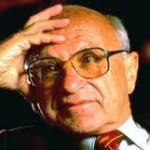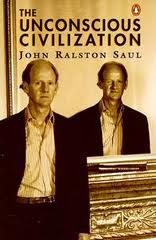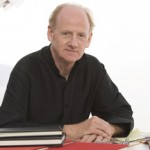I’ve been studying, considering and writing about this book off and on for months. My first look at The Unconscious Civilization (and its author, John Ralston Saul) was here, and the previous installment was summarized – in 500 of the best available words – here.
The middle lecture of the 1995 series of five Massey speeches was titled “From Corporatism to Democracy”, and today I’m concerned with the fourth of these lectures, titled “From Managers and Speculators to Growth”. All were published in book form later that same year, but I’ve been repeatedly struck, in this re-reading, by how fresh and even daring some of his insights still are. Partly this comes from Saul’s determined practice of the “art of the long view”, as it has been called, founding his arguments about contemporary life on long looks back at history, philosophy, even literature. He is no hermit, though, and is very plugged in to the most essential debates on social policy, city design, the place of the arts; what he is not plugged into, I suspect, is a computer. He wrote this book in a left-handed scrawl on a legal pad. However, he does have a Twitter presence, so he’s no Luddite. (And as this chapter makes clear in one historical reference, none of us are, as John Ludd and his followers were not the quaint, so-retro-they’re-almost-cute, dopey but harmless technophobic non-adaptors that our modern usage of the term implies.)
John Ralston Saul, when he employs the word “manager”, or the term “managerial elites”, is not being complimentary. He compares such people to power-seeking but ultimately irresponsible ‘courtiers’ that would gather around kings or any locus of authority. He blames much of our social and economic malaise on the prominence of people our society has trained to confirm and conform to and perpetuate corporatist “self-interest”; he contrasts this with the “disinterest”, the detachment that true and enlightened citizenship requires in seeing past our own good, and the benefits accruing to our particular group, to imagine and organize the common good.
As I’ve previously done, here are 500 words that try to capture Saul’s argument in this second-to-last chapter of The Unconscious Civilization:
- The Industrial Revolution brought prosperity only to the few, producing “a full century of unimpeded social decline and disorder”, the full Dickensian nightmare.
- Widespread prosperity eventually came from the work of “citizens [who] publicly opposed the conditions created by the Industrial Revolution”; social balance came via the practice of democracy.
- McCall’s Magazine in 1929 celebrated the boom economy just as the stock market crashed. We still haven’t learned the lesson: “we keep on hoping that we will rediscover prosperity through…market forces”, merely an absorbing game for the elites.
- “Our belief in salvation through the market is very much in the utopian tradition.” Corporatism is a religion, and the managerial class its priesthood. Forget conspiracy theories; technocrats aren’t super-conscious visionaries, they just benefit from the existing structure.
- They fear all the most effective qualities of capitalism itself (risk, innovation). “No matter how badly the MBAs are doing, they just go on hiring clones of themselves.” They preach capitalist ideology, but only simulate it through unproductive preoccupations like mergers and acquisitions. Their incomes skyrocket, the economy founders, the middle class erodes.
- They profit by flipping between nationalization and privatization; “an unnecessary move in either direction merely makes money for the political friends of the party in power”. Privatization of government functions is foolish, as business is better suited to fuelling real growth.
- We have “lost all sense of Adam Smith’s concept of ‘useful labour’”, and lost historical and philosophical perspective in favour of econometric game-playing. Do the “four pillars” of economic life help or hinder our progress?
- Pillar One: the marketplace. Not only does it “not balance or encourage democracy”, it “cannot give leadership even on straight economic issues”. Consider fish stocks, depleted because it was in nobody’s self-interest to maintain them, or industrial pollution, whose “inclusive costs” are not calculated in a market-driven, profit-based economy.
- Pillar Two: technology. We learn to worship it because corporations profit from it, yet it often interferes with or trivializes the need it supposedly serves. Windows 95, for example, provides impetus “not to thought but to minor technical manipulations”. The computer craze in education results in classrooms “full of students behind machines where they can be educated in isolation by something less intelligent than a human”. Modern machines follow centuries of invention that were supposed to “reduce work hours rather than to reduce workers”, proving their service of corporate, not social, interests.
- Pillar Three: globalization. The “invisible hand” mentioned by Adam Smith referred to comprehensible local markets, not unregulated global ones. Trade increases, general prosperity doesn’t. Corporate taxes decrease because jurisdictions fear they’ll flee to tax-friendlier regions, where corporatism reigns in “a sort of limbo, devoted solely to production…[but] devoid of the characteristics of human society” (sweatshops) Extra profits go to managerial game-playing, not to productive innovation. Cynical neo-conservatives ignore “the repeated admonition of their idol, Adam Smith, that high wages are essential to growth and prosperity”.
- The Luddite movement warned against “impossible work conditions, uncontrolled preference for technology over humans, and a market-led society”. Two centuries of “impossible social division” followed, provoking the great disruptions of recent history. Years of relative general prosperity since WW2 are again threatened in the name of globalization. Only democracy can truly lead, using the advancements that enabled globalization to regulate it.
- Pillar Four: money markets. A “tragicomedy”. Minimal taxation of currency trading would easily finance public institutions, if this money was real. “Money markets unrelated to financing real activity are pure inflation…, false growth [promoting] a feeding frenzy of delusion”. We have skewed views of assets and liabilities, in which health and education are technically financial liabilities, while “the illusion of growth through the sale of golf balls remains firmly in place”. We must reconceive growth and our societal priorities as more than consumerism, and “only a persistent public commitment by the citizenry can bring that about”.
When I started this chapter, I thought this might be the easiest summary – that is to say, the least interesting of the lectures, given my general inattention to the nuts and bolts of economics. Instead, my first draft ran towards 1500 words, axing so many good ideas was painful, and this time I lied to you: in fact, this précis runs at 650 words, and I hadn’t the heart to cut further. I’m a little worried, because the last lecture, “From Ideology Towards Equilibrium”, might be even better.




